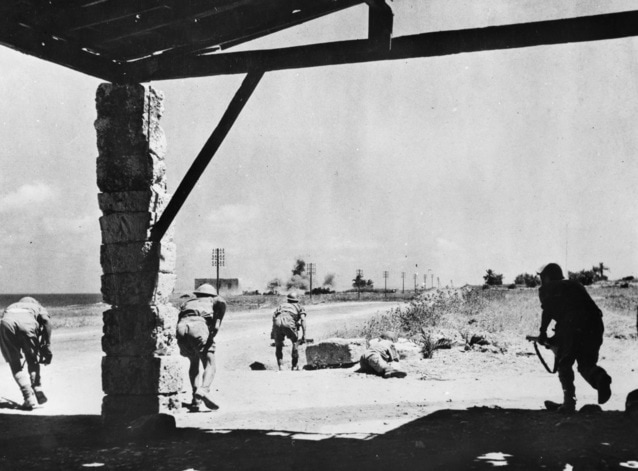The author author Hagen Seehase, who regularly contributes to Militär Aktuell recalls an almost forgotten theater of war of the Second World War in his new book “Lebanon-Syria-Feldzug 1941”.
Ever heard of the Battle of Berlin? Of the Battle of Stalingrad? Monte Cassino? D-Day, Midway, the attack on Pearl Harbor and the Battle of Kursk? Of course. Anyone interested in the Second World War will find it difficult to avoid these topics. Before, in between and after, however, there were also many less well-known battles and events that were nevertheless of decisive importance for the outcome of the war.

One of these hitherto rather unknown and media-unexposed scenes was the British campaign against the French Vichy government in Syria and Lebanon, which were then mandated territories of the League of Nations. After France’s defeat by Hitler’s Germany in June 1940, Marshal Philippe Pétain took over the reins of government and established the pro-German Vichy regime. The military leadership in the mandate area recognized this government, which naturally did not suit the British, who were traditionally well-positioned in the region. Concerns in London grew when, in May 1941, German and Italian planes used airfields in Syria as a stopover for their mission in the fighting in Iraq and Crete fell into the hands of the Wehrmacht. The British now feared an attack by the Axis powers on Palestine and Egypt, but above all an interruption of their oil supply routes in the region, and felt compelled to act.
 Subsequently, the British initiated a campaign of conquest by a rather motley army of British, Australians, Free French, Indians, local militias and Bedouins from Transjordan. Hagen Seehase describes in his book “Lebanon-Syria”, richly illustrated with archive material Lebanon-Syria Campaign 1941″ (Österreichischer Milizverlag, 138 pages, 22 euros, 2022) describes the overall operational-strategic situation and the balance of power in the run-up to the conflict in his usual objective and detailed manner, but above all the progress of the fighting, which began on June 8, 1941. On that day, two brigades of the Australian 7th Infantry Division crossed the border and marched towards Beirut and Rayak. Other troops also set off at practically the same time and the very next day there was a battle in Litani, where the Australian-British troops could not be stopped in their advance by the Vichy defenders. The British plan to advance as far as Beirut within a few hours came to nothing, as was soon clear. However, on July 14, “Operation Exporter” was successfully completed from the British point of view: The mandate territory was occupied.
Subsequently, the British initiated a campaign of conquest by a rather motley army of British, Australians, Free French, Indians, local militias and Bedouins from Transjordan. Hagen Seehase describes in his book “Lebanon-Syria”, richly illustrated with archive material Lebanon-Syria Campaign 1941″ (Österreichischer Milizverlag, 138 pages, 22 euros, 2022) describes the overall operational-strategic situation and the balance of power in the run-up to the conflict in his usual objective and detailed manner, but above all the progress of the fighting, which began on June 8, 1941. On that day, two brigades of the Australian 7th Infantry Division crossed the border and marched towards Beirut and Rayak. Other troops also set off at practically the same time and the very next day there was a battle in Litani, where the Australian-British troops could not be stopped in their advance by the Vichy defenders. The British plan to advance as far as Beirut within a few hours came to nothing, as was soon clear. However, on July 14, “Operation Exporter” was successfully completed from the British point of view: The mandate territory was occupied.
Click here to our other reports in the “Books & Media” section.










